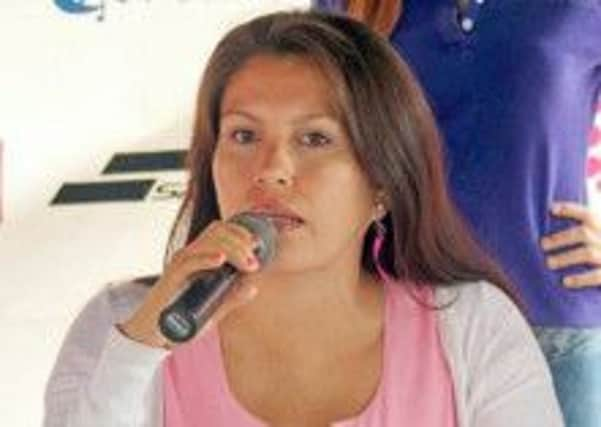Mexico: Women lead abuse fight in most violent town


Last week the interior ministry in Mexico City released a list of municipalities with “the most severe atmosphere of violence”.
Jojutla made the list, with nearly one woman a day from the area a reported victim of violence. About 310 urgent cases presented at its Women’s Centre between January and the end of April.
Advertisement
Hide AdAdvertisement
Hide AdMunicipal president Hortensia Figueroa Peralta is the first woman to hold such a position. Her three councillors are also women.
“When we visit the municipality’s smaller communities, it can feel like a brave step,” says Councillor Norma Elvia Buco, head of the Women’s Centre.
“At the public meetings you’ll see women standing on one side and men on the other. You’ll see hundreds of men watching a dozen women. They are afraid of what we’re telling the women.”
The first act of the all-female council was to open a women’s shelter.
“Only women and their children are allowed in,” says Pueblas Guzmán. “My colleague and I take care of them. It’s a safe space. We take them from the scene of violence in an ambulance to protect their secrecy. A lawyer and a psychologist go with them to make a report at the public ministry. Then they come to the shelter for as long as they need.”
One of the most high-profile cases of violence against women in Mexico was that of Maria Santos Gorrostieta, 36, the mayor of Tiquicheo, in rural Michoacan.
She was abducted in front of her daughter, tortured and executed in 2012. Her body was later dumped by a roadside.
She had defied drug gangs, fought for women’s rights, and survived two previous attempts on her life.
Advertisement
Hide AdAdvertisement
Hide AdAs well as catering to emergency cases, the Women’s Centre in Jojutla provides group and individual therapy, legal and medical advice, and workshops, all free of charge. It also sends out a mobile unit to visit isolated communities. One of the most effective tools handed out to women attending the Centre is the violentometro, a colour-coded “violence thermometer” ranging from “Things to look out for” to “You need professional intervention”.
“Women look at these things with such surprise,” Ms Guzmán said. “They think so much of it is normal.”
Centre manager, Marie Carmen Mendóza Beltrán, said: “What we’re fighting here is tradition. We go out in the mobile unit, and the girl won’t get in the car. She’ll say her husband won’t let her.
“We offer examinations [after a sexual assault], and men will prevent their wives giving consent because they don’t trust the doctors.”
Psychologist Teresa Morales Estrada reports the same resistance to therapy. “Last week one girl said her husband told her to choose between me and him. He was afraid she would change. I mean, that’s the whole point – that she’ll change. To him, she was his property. He had rights to her.”
A lawyer at the unit gives an insight in to the impact of men’s attitudes. “Two weeks ago a girl came here after a beating. She felt she was disrespecting her husband by reporting it to me.
“It took a long time to convince her that it was the other way around.”